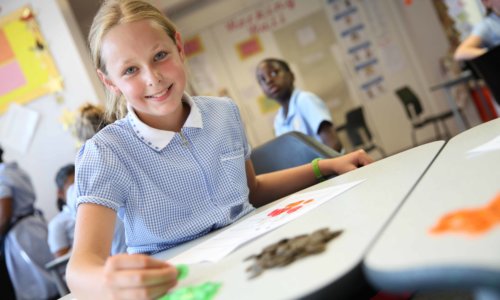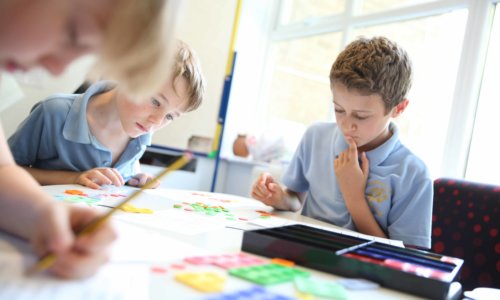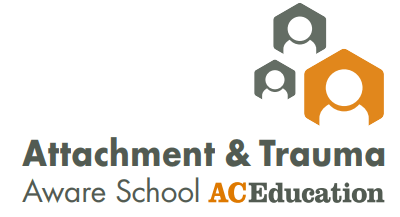Why Teach Mathematics?
Mathematics is a creative and highly inter-connected discipline that has been developed over centuries, providing the solution to some of history’s most intriguing problems. It is essential to everyday life, critical to science, technology and engineering, and necessary for financial literacy and most forms of employment. A high-quality mathematics education therefore provides a foundation for understanding the world, the ability to reason mathematically, an appreciation of the beauty and power of mathematics, and a sense of enjoyment and curiosity about the subject.
Aims of the new national curriculum
The national curriculum for mathematics aims to ensure that all pupils:
- Become fluent in the fundamentals of mathematics, including through varied and frequent practice with increasingly complex problems over time, so that pupils develop conceptual understanding and the ability to recall and apply knowledge rapidly and accurately.
- Reason mathematically by following a line of enquiry, conjecturing relationships and generalisations, and developing an argument, justification or proof using mathematical language.
- Can solve problems by applying their mathematics to a variety of routine and non-routine problems with increasing sophistication, including breaking down problems into a series of simpler steps and persevering in seeking solutions.
The teaching of mathematics at St. Catherine’s School is geared towards enabling each pupil to develop their learning without labelling them by ability. We endeavour to not only develop the mathematics skills and understanding required for later life, but also an enthusiasm and fascination about maths itself.
We aim to increase pupil confidence in maths so they are able to express themselves and their ideas using the language of maths with assurance.
We recognise the importance of developing factual, procedural and conceptual knowledge.
Nursery – Number blocks series 1 overview
Nursery – Number blocks series 2 overview
Nursery – Number blocks series 3 overview
Maths Workshop Progression of Skills Multiplication and Division
Maths Workshop Progression of Skills Addition and Subtraction
Our latest activities page will be updated frequently, so please visit regularly:





